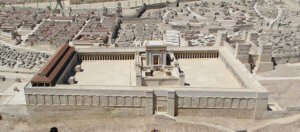
Divine Secrets
Good morning to all of you. It’s a pleasure to be with you again, and I am grateful to my dear friend, Della, for bringing us together.
Please pray with me. May the words of my mouth, and the meditations of all our hearts, be acceptable to you, Oh Lord, our rock and our redeemer. Amen.
Please be seated.
 Thanksgiving is my favorite holiday.
Thanksgiving is my favorite holiday.
I kind of want to stop here, while you’re all guessing it’s because I love practicing gratitude, or because I’m not materialistic, so I appreciate the fact that we don’t exchange gifts.
But I have to admit that my reasons are more prosaic.
One of the things I like about Thanksgiving is that so many of the dishes can be prepared in advance. There was a whole article about this in the New York Times a few days ago, complete with a photograph of chock-full Tupperware containers, clearly labeled and neatly stacked in a well-ordered fridge. Another thing I like is that it’s totally acceptable to go with a highly predictable menu. No one wants innovative tour de force experiments from those Ottolenghi cookbooks on turkey day.
This is my comfort zone. I like to plan ahead. I like clear, measurable goals. I like to know what’s going to happen and what’s expected of me, so I can figure out what I need to do. And then, when I’ve done it, I can lie down on the sofa and read (or re-read) some doorstop-sized novel until the stuffing that’s cooling on the counter is ready to go into its Tupperware dish.
Today’s Gospel reading offers little comfort for people like me.
 The disciples are in the temple, admiring the soaring walls, the stunning decorations, the rich adornments, the splendid, solid permanence of the place. It must have seemed like the architectural embodiment of the prophesy of Isaiah: Jerusalem restored, rebuilt, to even more than its former glory. Since their return from exile, more than five hundred years before, the Jews of Jerusalem had been worshipping in a temple that was viable, but a mere shadow of the original. And now, at last, a truly magnificent temple had been built. It was a miracle of faith and devotion to God, a remarkable feat of design and construction and – since it took almost fifty years to build – it was a testament to the power of planning ahead.
The disciples are in the temple, admiring the soaring walls, the stunning decorations, the rich adornments, the splendid, solid permanence of the place. It must have seemed like the architectural embodiment of the prophesy of Isaiah: Jerusalem restored, rebuilt, to even more than its former glory. Since their return from exile, more than five hundred years before, the Jews of Jerusalem had been worshipping in a temple that was viable, but a mere shadow of the original. And now, at last, a truly magnificent temple had been built. It was a miracle of faith and devotion to God, a remarkable feat of design and construction and – since it took almost fifty years to build – it was a testament to the power of planning ahead.
So there the disciples are, admiring it all, and Jesus says, “As for these things that you see, the days will come when not one stone will be left upon another; all will be thrown down.”[1] It’s all coming down. All that planning, all that careful, devoted work – it’ll all be wiped away. Gone.
The disciples exchange worried glances. You can see the wheels turning as they imagine the scale of disaster it would take to bring this incredible structure to the ground. Difficult as it may be to conceive of such a thing, they gulp hard and accept it. And then they want to plan ahead. Of course they do. They may have left everything behind to follow their teacher, but they haven’t lost their minds.
“‘Teacher,'” they ask, “‘Teacher, when will this be, and what will be the sign that this is about to take place?'”
But Jesus doesn’t tell them. He also warns them to watch out for people who claim to know. All sorts of terrible things will happen, he says. Wars, insurrections, nation rising against nation, famines, plagues … But there’s not much point watching for these things, and if you think you’re seeing them, well, you ain’t seen nothin’ yet. Because, he says, “before all this occurs” – I guess he means the really serious version of these disasters – “they will arrest you and persecute you; they will hand you over to synagogues and prisons, and you will be brought before kings and governors because of my name.” They’ll be called to testify. And for this testimony, too, he tells them, before they even have a chance to ask, don’t even try plan ahead.
I don’t know about you, but I’d be preparing my testimony if I were appearing in traffic court. Let alone standing before a king or governor who might decide to put me to death.
Why won’t Jesus tell them? Why won’t he let them plan ahead?
 If you look back through Luke’s gospel, you’ll find that Jesus’ teachings are consistent on this point. For the things that really matter – the coming of the Son of Man, the end of days – you aren’t going to get a timetable or a to do list. The master of the house won’t know when the thief will come; the servants won’t know when the traveling master will reappear. You don’t get to tick off all the items on a checklist and then lie on the sofa and re-read The Eustace Diamonds, secure in the knowledge that the mashed potatoes are tucked safely into the second shelf of the fridge.
If you look back through Luke’s gospel, you’ll find that Jesus’ teachings are consistent on this point. For the things that really matter – the coming of the Son of Man, the end of days – you aren’t going to get a timetable or a to do list. The master of the house won’t know when the thief will come; the servants won’t know when the traveling master will reappear. You don’t get to tick off all the items on a checklist and then lie on the sofa and re-read The Eustace Diamonds, secure in the knowledge that the mashed potatoes are tucked safely into the second shelf of the fridge.
But why? Why keep it secret? Why not give us a little more clarity, so we can decide what to do?
The second letter to the Thessalonians suggests one explanation. Apparently the backstory is that some members of the Thessalonika congregation had grown so confident that the Lord was coming for them any day now that they stopped working. After all, if the rapture is just around the corner, and you and yours are “in,” why sweat the small stuff? Why sweat at all? Sometimes – maybe a lot of the time – we don’t put information to good use.
But I wonder whether there’s another explanation, one that treats us like children of God, instead of just like children.
I wonder whether there’s something about not knowing that is essential to our relationship with God. Something about the posture of uncertainty that is deeply good for us. Something healthy and life-giving about the recognition that many of the most important things are outside our control.
Let’s go back to Thanksgiving for a moment. Everyone sits down to the delicious meal you’ve prepared with such excellent planning and foresight. And then what happens? Your family, your other guests … Will it be the peaceable kingdom, the lion lying down with the lamb? Or … not? And take a look around the table. Who is there with you this year? Is there a new daughter-in-law? And what about that young man over there, the scruffy, sorry-looking, not very nice-smelling one? Is he your child’s college friend who, at the last minute, had nowhere else to go? Or is he your son? Who isn’t there at the table with you? Why? And what about the world beyond your doors? What plagues, what injustice, what famine, warfare, and environmental calamities will you lift up amid your prayers of gratitude? And how many of these things, the things that really matter about this day, are orchestrated via your well-managed to do list?
Or will this be the year that you have no to-do list at all? Because your new daughter-in-law is taking care of everything? Or because you have no one with you, no one coming, and no place to go?
The possibilities are endless. We can hardly conceive of them, much less manage them. When we recognize this, when we wake up from our dream of independence and control, we wake into the realization that we’ve been promised only one sure thing.
God cares about us. We matter to God.
This doesn’t mean that God will make things go our way, at least not in any ordinary sense. Isaiah assures God’s people of a glorious new kingdom. He assures them of God’s love and care. But he doesn’t deny the calamity of Jerusalem’s destruction, or disregard the horrors of exile. These things happened. They can happen again. They will, Jesus says. The temple is coming down, all over again. And untold horrors will follow. You will be persecuted. You will testify. You will be given “words and a wisdom that none of your opponents will be able to withstand or contradict”;[2] nonetheless, you may be put to death.
And yet, and yet, at the same time: “‘Not a hair of your head will perish. By your endurance you will gain your souls.'”[3]
Our endurance, when things are tough, matters to God. God also cares about our gratitude, for the things that are good; and no matter what sort of situation we are in, God cares about our praise. God cares about these things not for God’s sake, but for ours.
God cares about us. We matter to God. Here we are, just as we are, and God is giving us close attention.
The prophets understood this. In the words of the rabbi and scholar Abraham Joshua Heschel, the prophetic experience consists of “living in the perpetual awareness of being perceived, apprehended, noted by God, of being an object of the divine Subject. This,” Heschel says, “is the most precious insight: to sense God’s participation in existence; to experience oneself as a divine secret.”[4]
A “divine secret.” What if, instead of fretting about secret signs we can’t recognize, or secret timetables that are being kept from us, we realize that the divine secret that really matters is … us?
Let’s try it. Just for the next week or so, while we make our to-do lists, do our shopping, tuck homemade pie crusts into the freezer, and recognize that most of the things that really matter are outside our control, let’s try to experience ourselves as a “divine secret.” What difference will it make, “living in the perpetual awareness of being perceived, apprehended, noted by God?”
I don’t know. I can’t plan that far ahead. But I’d like to give it a try.
Amen.
Bibliography
The New Oxford Annotated Bible: New Revised Standard Version with the Apocrypha, Fourth Edition. New York: Oxford University Press, 2010 (Kindle edition).
Heschel, Abraham Joshua. The Prophets. New York: Harper Perennial Classics, 2001 (original hardcover edition published by Harper & Row, 1962).
[1] Luke 21:6.
[2] Luke 21:15.
[3] Luke 21:18-19.
[4] Heschel, p.619.
